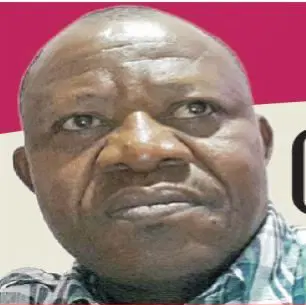Whatever one may say about Bola Tinubu, also known as Jagaban Borgu, he stands as a remarkable case study in Nigerian politics. He is the only political leader to have successfully installed his handpicked governors while controlling Nigeria’s richest state—Lagos—for over 25 years. Moreover, he is the only political leader to have facilitated the ascendancy of two presidents: Muhammadu Buhari and himself. This intricate political narrative is vividly explored in my book, BUHARI
– How They Snatched and Shared Power (Amazon Books, August 2023).
Tinubu makes godfatherism appear effortless, leaving many departing governors aspiring to emulate his success. However, the journey is fraught with challenges. Not every former governor can navigate this political landscape successfully. A notable exception to this trend is Ezenwo Nyesom Wike, the Minister of the Federal Capital Territory (FCT), who has embarked on the quixotic endeavor of playing Jagaban in Rivers State. I present two case studies for his consideration.
The first is Atiku Abubakar, a former Vice President of Nigeria, who won the governorship election in Adamawa State in 1999. When he was selected by Olusegun Obasanjo as his presidential running mate, Atiku handed over the governorship to his Deputy, Boni Haruna. Rather than exercising godfatherism over Haruna, he assumed the role of a supportive uncle. Haruna, a Christian in a predominantly Muslim state, was afforded protection and two full terms in office under Atiku’s influence. In return, Haruna honored Atiku’s wishes, further solidifying their alliance.
The second, more compelling example is from Borno State, where Senator Ali Sheriff (alias SAS) served as an imperial governor from 2003 to 2011. Toward the end of his tenure, he attempted to assert his authority over his successor, Kashim Shettima, a highly capable commissioner he had appointed. Initially, Shettima complied, but as Sheriff’s demands grew unbearable and he began to thwart Shettima’s second term ambitions, the latter responded decisively. Shettima not only defeated Sheriff but also completed his second term in 2019, earning distinction as the Chairman of the 19 Northern Governors Forum.
Shettima, having learned from his experience with SAS, wisely chose not to play Jagaban again. Instead, he appointed his most diligent and least corrupt commissioner, Prof. Babagana Zulum, as his successor. Before leaving office, Shettima publicly expressed his confidence that Zulum would surpass his performance, repeatedly referring to him as “my leader” even before his official swearing-in. Shettima later transitioned to the Senate, where Tinubu, the presidential candidate of the ruling All Progressives Congress (APC), selected him as his running mate.
Shettima’s humility and strategic foresight have proven beneficial. Had he attempted to dominate Governor Zulum, whose temperament is assertive, he might have faced a backlash similar to what he delivered to SAS, potentially rendering him politically irrelevant. Today, Shettima enjoys the position of Nigeria’s Number Two, benefitting both himself and Borno State. His deft management of his relationship with Zulum meant that Zulum chose to complete his term rather than pursue the vice presidency, further stabilizing their governance.
In contrast, Wike has misjudged the dynamics of Rivers politics. Unlike Lagos, Rivers possesses an Eastern political culture, which is distinctively different. While Lagos operates under a Western political framework—characterized by a strong master-servant dynamic—Rivers adopts a more republican and equitable approach. A Rivers governor wields considerable power within the state, but once out of office, they become vulnerable to federal authority. The experiences of Dr. Peter Odili and Chibuike Amaechi exemplify this reality.
Wike seems determined to rewrite this narrative. Despite previously denouncing godfatherism, he has installed his former Accountant General, Siminalayi Fubara, as his successor and financed numerous elected officials using Rivers State resources. His support for Tinubu during the presidential election earned him a ministerial appointment, but he now seeks to dictate terms to Governor Fubara. This backfires, illustrating the folly of a minister attempting to control a state governor.
Despite the apparent obstinacy of Wike and his followers, many should be aligning behind Fubara by now. Their resilience seems rooted in the belief that “federal might” will secure victory. With the police, army, INEC, DSS, and Supreme Court under Tinubu’s influence, they may replicate the recent “Edo magic” in their favor come 2027. However, such a scenario could materialize sooner if Tinubu decides to declare a state of emergency to displace Fubara.
In conclusion, the political landscape in Nigeria is a complex interplay of power, relationships, and strategic maneuvering. As we reflect on these dynamics, it becomes clear that success in Nigerian politics requires not only ambition but also wisdom, humility, and a keen understanding of the intricate web of alliances that define the nation’s governance.

